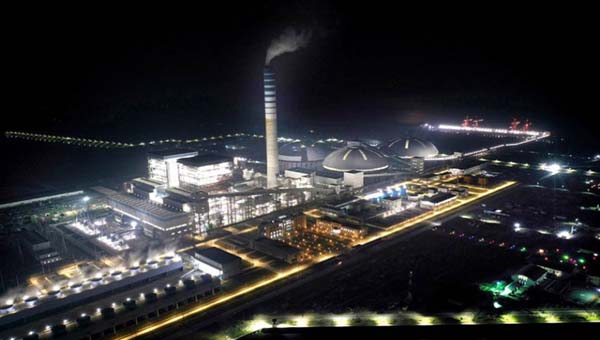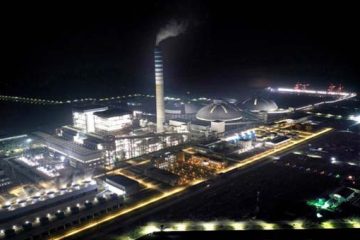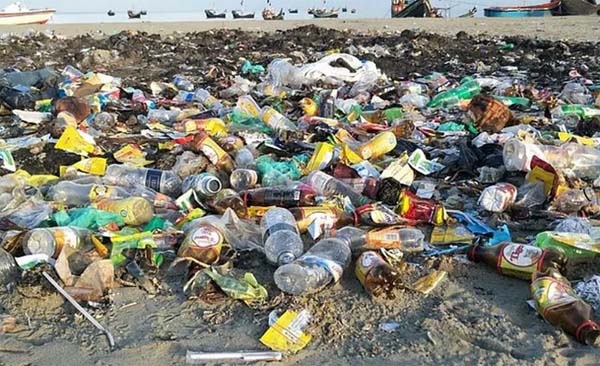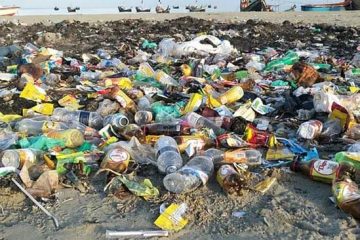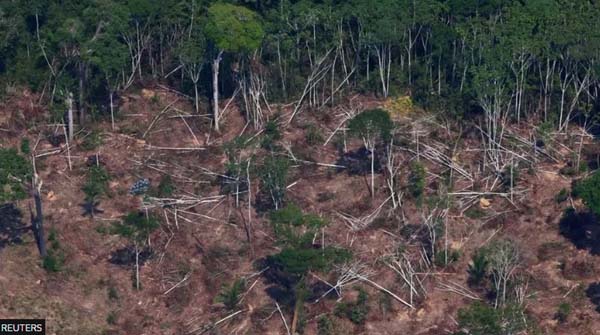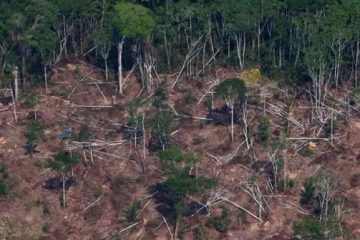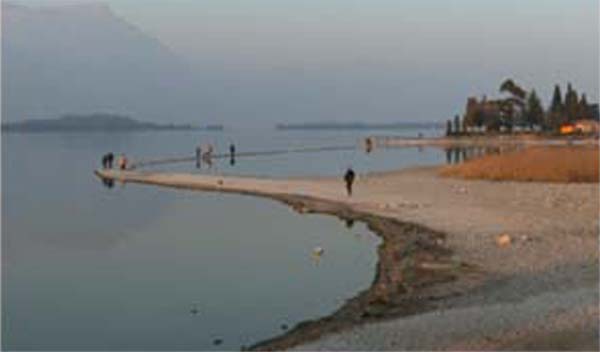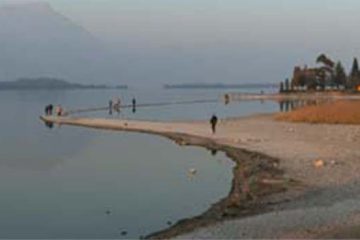Emran Hossain The government’s latest assessment of environmental and other compliances of the Rampal power plant has revealed rampant violations, exposing lives and nature to the hazards predicted by experts well before the plant’s installment, to which the Sheikh Hasina regime refused to pay heed. The assessment conducted by the state-owned institution, the Center for ... Read more
Environment
Stakeholders on St. Martin’s demand stringent action against plastic pollution
Environment Desk : dhakamirror.com Stakeholders have stressed that raising awareness alone is not enough to tackle plastic pollution on the country’s only coral island, Saint Martins, and are advocating for restrictions on plastic use and penalties for non-compliance. At a panel discussion entitled “Plastic Free St Martins” on Wednesday, they called for strict limits on ... Read more
Amazon deforestation down by a third in 2023, says Brazilian government
Environment Desk : dhakamirror.com Deforestation in Brazil’s Amazon fell by 33.6% in the first six months of President Luiz Inácio Lula da Silva’s term compared with the same period in 2022, the government says. Its suggests the rainforest shrank by 2,649 sq km this January-June, down from 3,988 sq km in those six months last ... Read more
Half of world’s largest lakes, reservoirs losing water, Study finds
News Desk : dhakamirror.com More than half of the world’s largest lakes and reservoirs have lost significant amounts of water over the last three decades, according to a new study, which pins the blame largely on climate change, intensifying concerns about water for agriculture, hydropower and human consumption. According to a team of international researchers, ... Read more
Waterways disappear as rivers die
World River Day today Rashad Ahamad Inland waterways, once the prime mode of transportation in Bangladesh, have declined fast as many rivers, canals, and other water bodies have disappeared in riverine Bangladesh over the past decades. Due to geographical location, inland waterways were the main mode of transportation in Bangladesh, a country part of the ... Read more
Chattogram city produces 249 tonnes of plastic waste every day
Will generate 428 tonnes by 2052 News Desk : dhakamirror.com Chattogram city produces 249 tonnes of plastic waste every single day — 56 percent of which remains uncollected and littered in the environment, according to a new study. “Of the plastic waste, the most are sachets, single-use utensils, and personal care items, ” the study ... Read more
Non-stop river pollution threatens water security
World Environment Day Non-stop river pollution threatens water security Laws, rules, HC directives go in vain Rashad Ahamad No pragmatic step is yet to be taken to protect the four rivers surrounding Dhaka even after declaring them ecologically critical 13 years ago. In September 2009, the Department of Environment declared the four rivers Ecologically Critical ... Read more
Air pollution takes 3 years off life in Bangladesh
Impact on life expectancy in Bangladesh worse than in India, Pakistan, Bhutan Mohammad Al-Masum Molla Air pollution cuts the average life expectancy of a person in Bangladesh by almost three years, said a global report. It is higher than in India, Pakistan, Bhutan, and Afghanistan. Nepal, with air pollution-linked life expectancy loss of 3.05 years, ... Read more
Rain at the summit of Greenland for the first time on record
Something extraordinary happened recently. On August 14, 2021, it rained at the highest point on the Greenland Ice Sheet for several hours — the first rainfall event in recorded history, and air temperatures remained above freezing for about nine hours. The record-breaking rain is the latest in a string of warning signs about how climate ... Read more
Emissions of CO2 driving rapid oceans ‘acid trip’
The world’s oceans are becoming acidic at an “unprecedented rate” and may be souring more rapidly than at any time in the past 300 million years. In their strongest statement yet on this issue, scientists say acidification could increase by 170% by 2100. They say that some 30% of ocean species are unlikely to survive ... Read more
Warming trees limit warming – a little
Warmer temperature prompts trees to release aerosols which in turn stimulate cloud formation. And that can help to cool the temperature, at least modestly. Trees may provide the Earth with a little shade from global warming – indirectly. European and Canadian researchers report that they have found what engineers like to call a negative feedback ... Read more
Evaluating services of forest
Biodiversity contributes considerably to economy and environment Dr. M. A. BASHAR In developing countries, the necessity of publicising services of forests is severely lacking. This sector must be given attention with special emphasis. The country like Bangladesh has to be very serious in all respects to understand and exercise the services offered by the forests. We ... Read more
What the outcome yields for Bangladesh?
Doha Climate Conference What the outcome yields for Bangladesh? Md. Mahfujur Rahman Thirty-seven industrialized countries had been accused of releasing Greenhouse gases in Kyoto Protocol under United Nations Framework Convention on Climate Change (UNFCCC). Signatory members to the UNFCCC have been meeting annually in Conference of the Parties (COP) to assess progress in dealing with ... Read more
Down with the hills!
Probir Kumar Sarker Though Bangladesh is prominently a plain land, its Chittagong, Cox’s Bazar, Rangamati, Khagrachhari, Bandarban and Sylhet have hilly areas with forests and rich biodiversity. These areas are full of natural resources fulfilling needs of the people and other living species. But at present, the destruction of hills in every area has become ... Read more
A prerequisite for sustainable development
Natural Resource Governance A prerequisite for sustainable development Rukshana Sultana The constitution of Bangladesh — article 143– illustrates that all natural resources on land and underground minerals and other things of value underlying the ocean within the territorial waters, or the ocean over the continental shelf of Bangladesh, are the properties of Bangladesh. In general, ... Read more
Contemplating mitigation measures
Global Warming Contemplating mitigation measures Md. Atikur Rahman All things that make up the environment are interrelated. The way in which people, animals and plants are related to each other and to their surrounding is known as ecology. The ecosystem is a complex web that links animals, plants and every other life form in the ... Read more
Save Savar from further degradation
Probir Kumar Sarker Over the recent years, Savar is experiencing immense pressure of new industrial, commercial and residential establishments. But most of these have already been done or are underway indiscriminately haphazardly, and by violating the environmental laws and ignoring overall public convenience, not to speak of the care for future growth. It has been a ... Read more
Save Sonadia, save Sundarbans
Sourav Mahmud Sonadia Island is one of the biodiversity hotspot of Bangladesh. In 1995, the Government of Bangladesh included a provision for the declaration of Ecologically Critical Area (ECA) in the Bangladesh Environment Conservation Act. Twelve sites are classified as ECAs and guidelines exist to control further damage to these areas. Sonadia is considered ecologically ... Read more
Ramsar Convention: Our obligation
Dr. M.A. Bashar It is learnt from newspapers very recently that in the Sundarbans area three large constructions will take place which are very dangerous and detrimental to normal functioning of the mangrove forest ecosystem. It means that the interactions between biotic and abiotic factors will be seriously hampered in the ecosystems conservation. The projects ... Read more
Legal response to loss and damage
Climate Change Legal response to loss and damage Hafijul Islam Khan The adverse impacts of climate change have continued to devastate the lives and livelihoods of millions of people and inflict large economic losses. According to the Fourth Assessment Report of the Intergovernmental Panel on Climate Change, there has been a global increase in weather ... Read more

